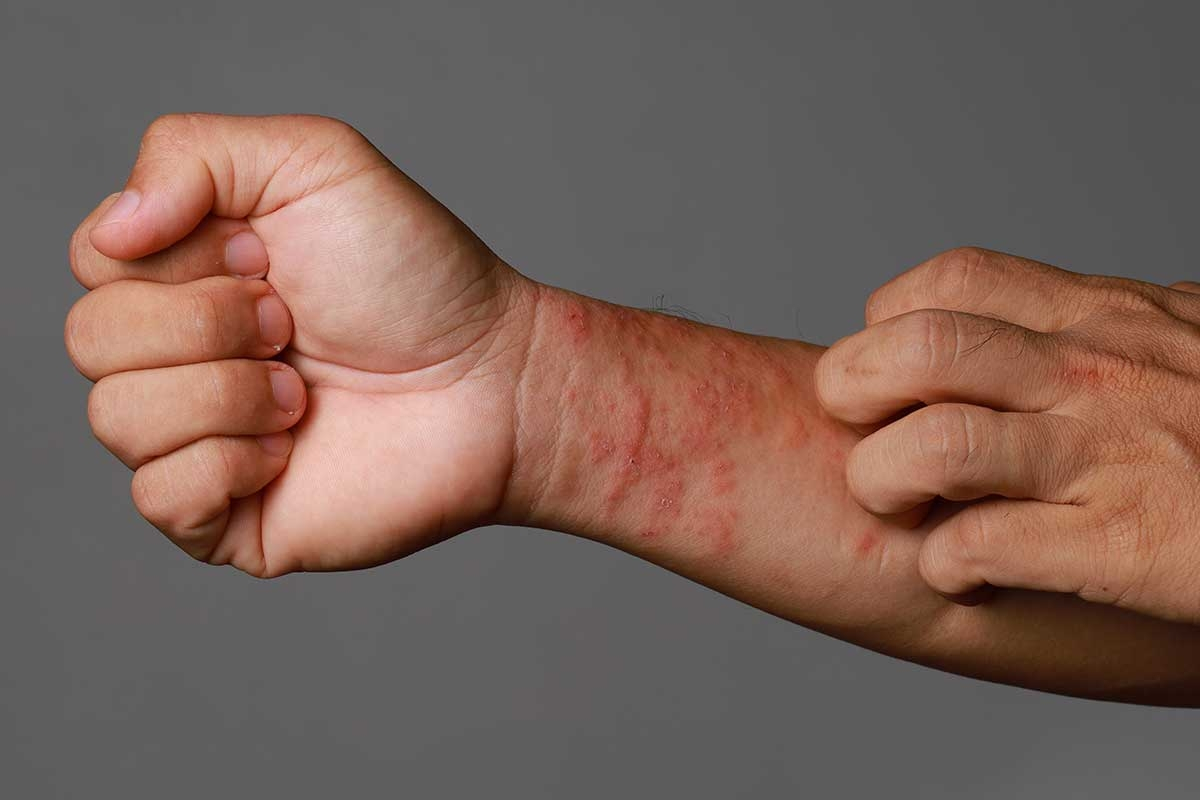Eczema: Symptoms, Causes, and Effective Treatments
Eczema, also known as dermatitis, is a chronic inflammatory skin condition that affects millions worldwide. Its symptoms, such as redness, itching, and dryness, can significantly impact a person’s quality of life. Understanding the causes, symptoms, and treatment options is crucial for effective management and prevention.
What Is Eczema?
Eczema refers to a group of skin conditions that cause inflammation, dryness, and irritation. It is a common issue that affects individuals of all ages, with varying severity.
How It Affects the Skin
Eczema disrupts the skin's barrier function, leading to symptoms such as scaling, itching, and redness. In severe cases, the skin may crack or form blisters, causing discomfort and vulnerability to infections.
Common Types of Eczema
- Atopic Dermatitis: The most prevalent form, often linked to allergies and asthma.
- Contact Dermatitis: Triggered by direct contact with irritants or allergens.
- Nummular (Discoid) Eczema: Circular patches of inflamed, scaly skin.
- Seborrheic Dermatitis: Commonly affects oily areas like the scalp and face.
- Varicose Dermatitis: Affects the lower legs due to poor circulation.
Symptoms of Eczema
Eczema symptoms can range from mild irritation to severe discomfort, depending on the type and individual.
Primary Symptoms
- Redness and inflammation: The affected areas appear swollen and irritated.
- Intense itching: Often worsens at night, disrupting sleep.
- Dry, scaly skin: The skin may crack or peel.
- Blisters or oozing lesions: Occur in severe cases.
Commonly Affected Areas
- The folds of the elbows and knees.
- Hands, face, neck, and feet.
- In infants, it frequently appears on the scalp and cheeks.
Symptoms by Age Group
- Infants: Crusty patches, especially on the face and scalp.
- Children: Dry, flaky skin in joint creases.
- Adults: Persistent dry, thickened skin, often with severe itching.
Causes of Eczema
Eczema arises from a combination of genetic, environmental, and immune-related factors.
Genetic Factors
A family history of eczema, allergies, or asthma increases the likelihood of developing the condition. Mutations affecting the skin's ability to retain moisture also contribute to its onset.
Environmental Triggers
- Allergens: Pollen, dust mites, and pet dander.
- Weather: Dry or excessively humid climates exacerbate symptoms.
Skin Barrier Dysfunction
Eczema-prone skin struggles to retain hydration and protect against irritants, allowing allergens and microbes to penetrate.
Triggering Factors
- Emotional stress: Can worsen flare-ups.
- Irritants: Soaps, detergents, and cosmetics.
- Sweating or tight clothing: Increases irritation.
- Infections: Bacterial, viral, or fungal conditions can worsen symptoms.
Diagnosing Eczema
An accurate diagnosis is essential for tailoring an effective treatment plan.
Medical History
Doctors evaluate the patient’s symptoms, family history, and possible triggers, such as allergens or environmental factors.
Physical Examination
A visual inspection of the skin helps identify characteristic signs of eczema, such as redness, scaling, and lesion distribution.
Additional Tests
- Allergy Testing: Helps identify specific triggers.
- Skin Biopsy: Performed in atypical or treatment-resistant cases to rule out other conditions.
Effective Treatments for Eczema
While eczema cannot be cured, treatments aim to manage symptoms, prevent flare-ups, and improve skin health.
Basic Skin Care
- Hydration: Daily use of emollients restores the skin’s moisture barrier.
- Gentle Cleansing: Lukewarm baths with mild, fragrance-free soaps reduce irritation.
Topical Medications
- Corticosteroids: Reduce inflammation and itching.
- Calcineurin Inhibitors: Non-steroidal options like tacrolimus are effective for sensitive areas.
Oral Medications
- Antihistamines: Relieve itching and improve sleep.
- Immunosuppressants: Used in severe cases to control inflammation.
Phototherapy
Ultraviolet (UV) light therapy reduces inflammation and itchiness, particularly in chronic eczema cases.
Advanced Treatments
- Biologics: Medications like dupilumab target the immune system to control severe atopic dermatitis.
- Natural Remedies: Oatmeal baths, cold compresses, and hydrating oils can complement medical treatments.
Preventing Eczema
Preventing flare-ups is a key aspect of long-term eczema management.
Daily Hydration
Regular use of emollients prevents skin from drying out and strengthens its barrier function.
Avoiding Triggers
- Identify and minimize exposure to irritants like certain fabrics or cleaning products.
- Manage allergens through regular cleaning and air purification.
Environmental Control
- Maintain moderate indoor humidity levels.
- Dress appropriately for the weather to avoid excessive sweating or dryness.
Healthy Lifestyle
- Manage stress through relaxation techniques.
- Eat a balanced diet rich in nutrients that support skin health.
Complications of Eczema
Without proper care, eczema can lead to secondary issues.
Infections
Persistent scratching can break the skin, allowing bacteria or fungi to cause infections like cellulitis.
Emotional Impact
Living with eczema can lead to anxiety, depression, or social withdrawal, emphasizing the need for psychological support.
Severe Cases
Chronic or untreated eczema may require systemic or biological treatments to prevent further complications.
When to See a Doctor
It is important to seek medical advice if:
- Symptoms persist despite using over-the-counter treatments.
- Lesions become painful, infected, or interfere with daily life.
- Eczema significantly affects emotional well-being.
Conclusion
Eczema is a manageable condition with proper care, consistent treatment, and professional guidance. While it can be challenging, taking proactive steps to address symptoms and triggers can significantly improve quality of life.
Book an appointment with the specialists at Clinic Consultation for expert diagnosis and effective treatment tailored to your eczema needs.
